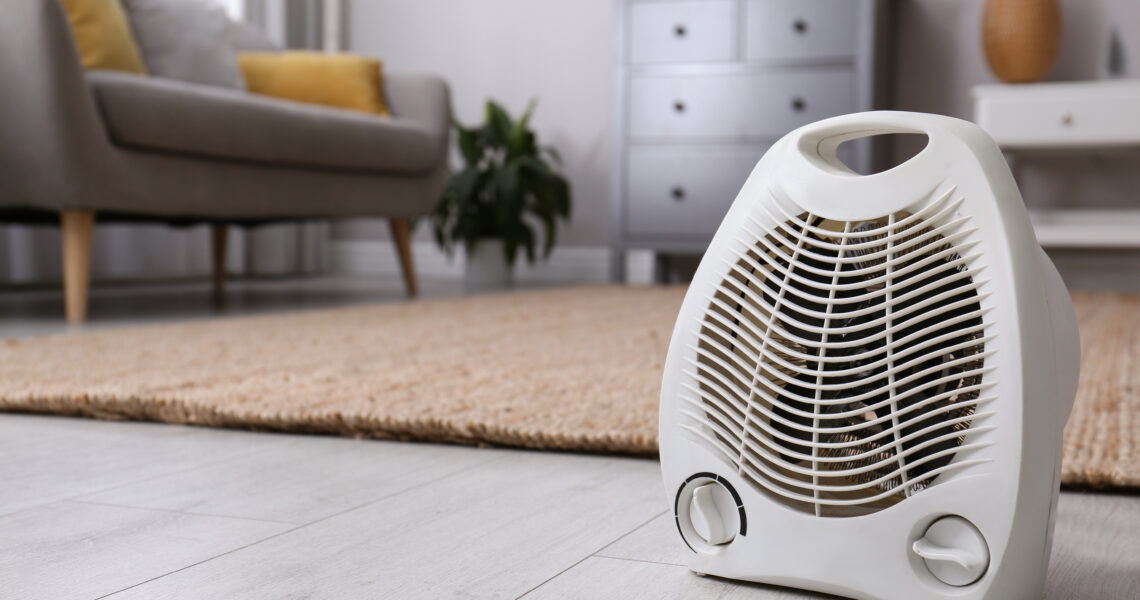Which Type of Heater is Cheapest to Run?
It’s important to be conscious about our energy usage – it helps us look after both the planet and our bills.
Searching for the ideal electric heater can be daunting, with so many varieties available. It’s important to select one that is tailored to your specific needs and has a high energy efficiency rating.
If you’re in the market for an energy efficient heater to keep your home warm, or if you simply want to explore the electric heating options available, then look no further! Here is a detailed overview of each type of electric heater with their associated benefits and running costs.
Halogen Heaters
Halogen Heaters are perfect for swiftly warming a space. Their name is derived from the halogen element within the heater’s bulb or lamp, which generates heat when combined with electricity and emits radiant warmth. This type of heat is ideal if you need to quickly warm up an area but won’t be as effective in heating an entire room evenly.
Halogen heaters are among the most cost-effective electric heater options, with a typical power output of 1200W. Their immediate warmth in close proximity saves energy by not needing to be left running for long stretches of time.
Convector Heaters
Convector heaters are a perfect solution for heating up medium to small-sized spaces with consistent warmth. This is achieved through convection, an efficient mechanism that works by allowing the warm air inside of your home to ascend while drawing cool air into the base of the heater where its temperature will be amplified and then expelled at it’s top.
Although convection heaters take a little bit more time to provide warmth than models like halogen heaters, the payoff is worth it. The entire room will be evenly heated and since most of these varieties have an output power of 2000W, they may be pricier to operate. Furthermore, you’ll likely need to keep them on longer compared with radiant heater systems.
Equipped with a built-in thermostat control, convector heaters give you the power to accurately regulate their heat and energy output for optimum efficiency.
Oil Filled Radiators
Oil-filled radiators are perfect for a sustained warmth. Through their unique thermodynamic process, these units employ an electric heating element submerged in oil to warm the radiator body and then transfer that heat into your room – both through convection and radiation. When switched on, you can feel the results almost instantaneously!
Oil-filled radiators offer a wide range of wattage and prices, but the primary benefit is their thermostatic control. This means that users can customize how much heat they want to produce and make sure that energy consumption is kept at an optimal level. Given its power saving features, this heating source has been shown to be one of the most economically viable options available!
Furthermore, oil-filled radiators are much more efficient at retaining heat than other types of room heaters; which means that the radiator will still give off warmth for some time after the switch has been turned off. For cost estimation purposes, we have estimated an average wattage of 1500W when it comes to running an oil-filled radiator.
Fan Heaters
Quickly heating a small room? Look no further than fan heaters! Cold air travels into the back of the heater, where it passes over an electric element that warms it before being expelled from the front by an internal fan.
Fan heaters are the perfect choice of heater for those who want to quickly and efficiently warm up a room. With its powerful fan, warm air can circulate at greater distances faster than other types of heaters. While it does produce some noise during operation, these handy machines may be found with thermostatic control and will typically come in 2000W models.
Conclusion
After evaluating the various kinds of electric heaters on the market, it is clear that halogen heaters are most cost-effective to run due to their lower power output. Though many of the higher wattage models come with inbuilt thermostats and timers, allowing you to manage how much energy they use and for what duration. This feature helps minimize running expenses significantly! Ultimately, your preference will depend upon finding a heater that suits your needs as well as one which can be used efficiently.
It is important to be mindful that if electric room heaters are used for extended periods, they can become expensive due to the higher cost of electricity compared to gas. These devices produce intense and quick warmth which should only be turned on intermittently in order to warm up a space as opposed using central heating systems for long durations.

